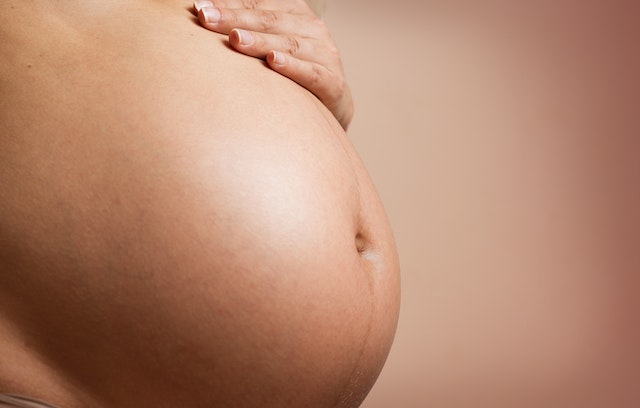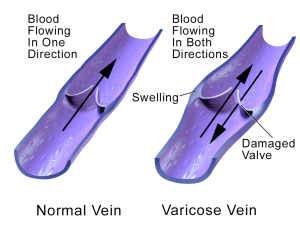Let’s discuss what to expect regarding vein conditions during pregnancy and provide tips on how to manage them effectively. Pregnancy brings about numerous changes in a woman’s body, including an increased risk of developing vein conditions such as varicose veins and spider veins. These conditions can cause discomfort and concern, but with proper care and management, you can alleviate symptoms and promote healthy veins.

Understanding Vein Conditions During Pregnancy
During pregnancy, several factors contribute to the development of vein conditions:
- Increased Blood Volume: The body produces more blood to support the growing fetus, putting additional pressure on the veins.
- Hormonal Changes: Hormones released during pregnancy relax the walls of blood vessels, making them more prone to swelling and varicose veins.
- Pressure from the Uterus: As the uterus expands, it puts pressure on the veins in the pelvis and legs, impeding blood flow and leading to vein issues.
- Genetics: A family history of varicose veins or venous insufficiency can increase your risk during pregnancy.
Common Vein Conditions During Pregnancy
Varicose Veins
Varicose veins are enlarged, swollen veins that often appear on the legs. They can cause aching, heaviness, and discomfort, particularly after prolonged standing or sitting.
Spider Veins
Spider veins are smaller, red or blue veins that appear close to the surface of the skin. They are generally harmless but can be a cosmetic concern.
Hemorrhoids
Hemorrhoids are varicose veins that occur in the rectal area, causing discomfort, itching, and bleeding.
Managing Vein Conditions During Pregnancy
While you cannot entirely prevent vein conditions during pregnancy, there are several steps you can take to manage symptoms and promote healthy veins:
1. Stay Physically Active
Regular physical activity, such as walking, swimming, and prenatal yoga, can improve circulation and reduce the risk of vein issues. Aim for at least 30 minutes of moderate exercise most days of the week.
2. Elevate Your Legs
Elevating your legs above heart level for short periods throughout the day can help reduce swelling and improve blood flow. This is particularly beneficial after long periods of standing or sitting.
3. Wear Compression Stockings
Compression stockings provide gentle pressure on the legs, helping veins move blood more efficiently. They can be particularly helpful for reducing swelling and discomfort.
4. Maintain a Healthy Weight
Gaining weight gradually and maintaining a healthy weight during pregnancy can reduce the pressure on your veins and lower the risk of varicose veins.
5. Avoid Prolonged Sitting or Standing
If your lifestyle or job requires long periods of sitting or standing, take regular breaks to move around and stretch your legs. This helps prevent blood from pooling in the lower extremities and promotes healthy circulation.
6. Stay Hydrated
Drinking plenty of water throughout the day helps maintain healthy blood viscosity and reduces the risk of blood clots.
7. Eat a Balanced Diet
A nutrient-rich diet supports overall vascular health. Incorporate plenty of fruits, vegetables, whole grains, lean proteins, and healthy fats into your meals. Foods rich in fiber can also help prevent constipation, reducing the risk of hemorrhoids.
When to Seek Medical Help
While most vein conditions during pregnancy are manageable with lifestyle changes, it’s important to seek medical attention if you experience any of the following:
- Severe pain or swelling in the legs
- Redness, warmth, or tenderness in the affected area
- Signs of a blood clot, such as sudden shortness of breath or chest pain
- Bleeding or severe discomfort from hemorrhoids
Contact Dr. Norman Chideckel for Vein Health Guidance During Pregnancy
If you’re concerned about vein conditions during pregnancy or need personalized guidance on managing symptoms, consult with Dr. Norman Chideckel at the Vascular Surgery & Vein Center in New York City. Dr. Chideckel is dedicated to providing comprehensive care and tailored recommendations to help you maintain healthy veins throughout your pregnancy.
To learn more and schedule a consultation, reach out to us at:
Dr. Norman Chideckel
108 East 96th Street, Front 1
New York, NY 10128
212-993-6133




 In most cases, varicose veins that develop during pregnancy will improve on their own after delivery. However, in some cases, varicose veins can cause pain, discomfort, and other complications. If you’re experiencing any of the following symptoms, it’s important to seek medical attention:
In most cases, varicose veins that develop during pregnancy will improve on their own after delivery. However, in some cases, varicose veins can cause pain, discomfort, and other complications. If you’re experiencing any of the following symptoms, it’s important to seek medical attention: